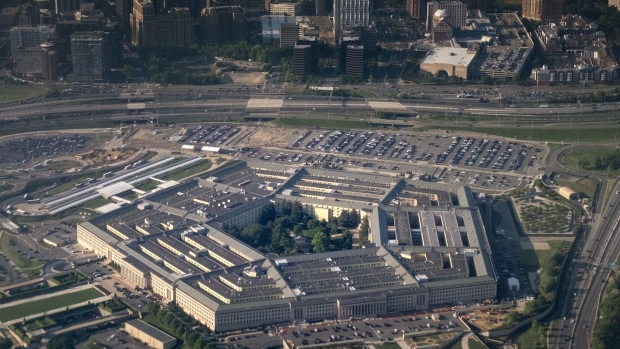May 18, 2023
New Pentagon Missile Defense Radar Is Delayed and Over Budget, GAO Says
, Bloomberg News

(Bloomberg) -- Delivery of Lockheed Martin Corp.’s new ground radar for the US system in Alaska intended to track and intercept missiles from North Korea or Iran will be delayed by more than a year, according to congressional auditors.
The Pentagon’s Missile Defense Agency announced in December 2021 the completion of construction of the site in Alaska to house the radar. Since then, however, “the program continues to experience cost increases and schedule delays, which have postponed the contractor’s delivery” until at least Sept. 30, the Government Accountability Office said in its annual report on US missile defenses.
Missile Defense Agency officials previously told the GAO that delivery was planned during the fiscal year that ended last September.
The new radar is intended to integrate with the US’s existing missile-defense network of space and sea-based sensors that tie into missile interceptors in Alaska and California.
Like many defense programs, the radar project was dogged by disruptions related to Covid-19, which added 4 1/2 months of delays and $43.7 million in costs. The complexity of “calibrating” the radar added an additional 4 1/2 months, the GAO said. And an investigation into a “radar component failure” and corrective action “further delayed delivery by nine months,” it said.
The delays have pushed back by a year a key flight test designed to demonstrate the radar is operational to sometime from July to Sept. 30 — or about when the system is supposed to be delivered. So the radar is “at risk of being delivered” before it “participates in any successful flight tests.” That means its “capability and limitations may not be fully known or verified prior to government” acceptance, the GAO said.
Vice Admiral Jon Hill, director of the Missile Defense Agency, said in congressional testimony this month that the radar is intended to be operational in fiscal 2024, or sometime after Oct. 1.
The Missile Defense Agency didn’t have an immediate comment on the GAO report. Lockheed Martin said in a statement that “we are working closely with MDA to support homeland defense and missile defense missions with the capabilities provided by the Long Range Discrimination Radar.”
(Updates with Lockheed comment in last paragraph)
©2023 Bloomberg L.P.


